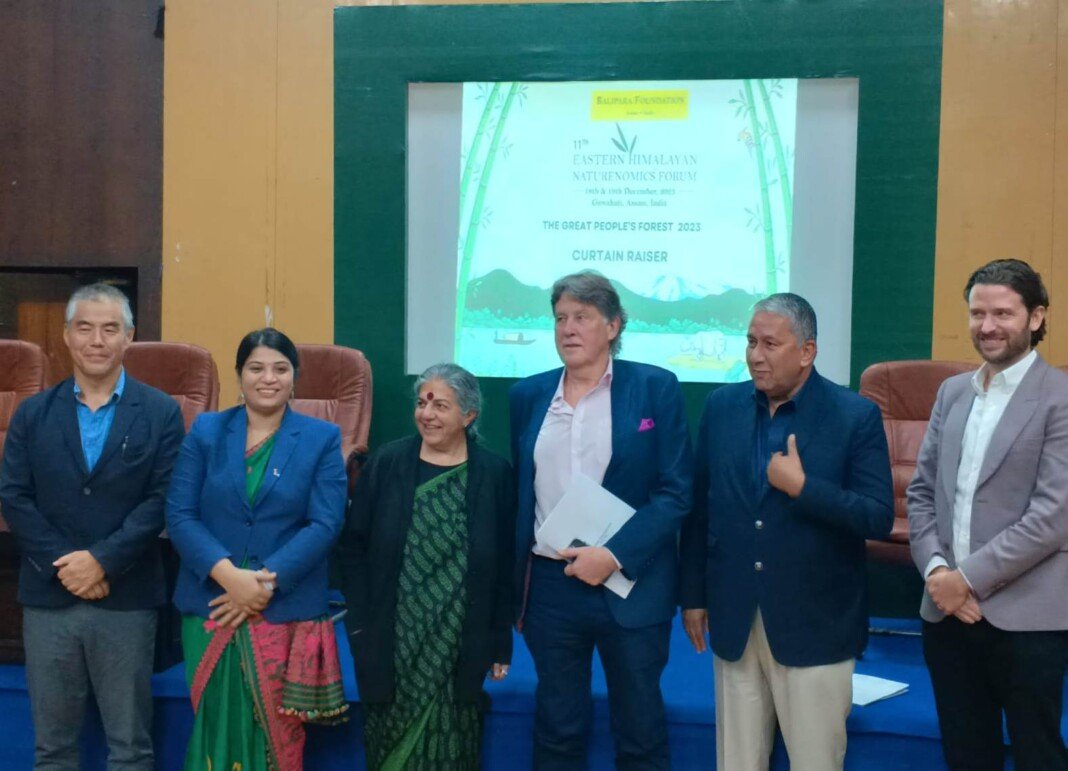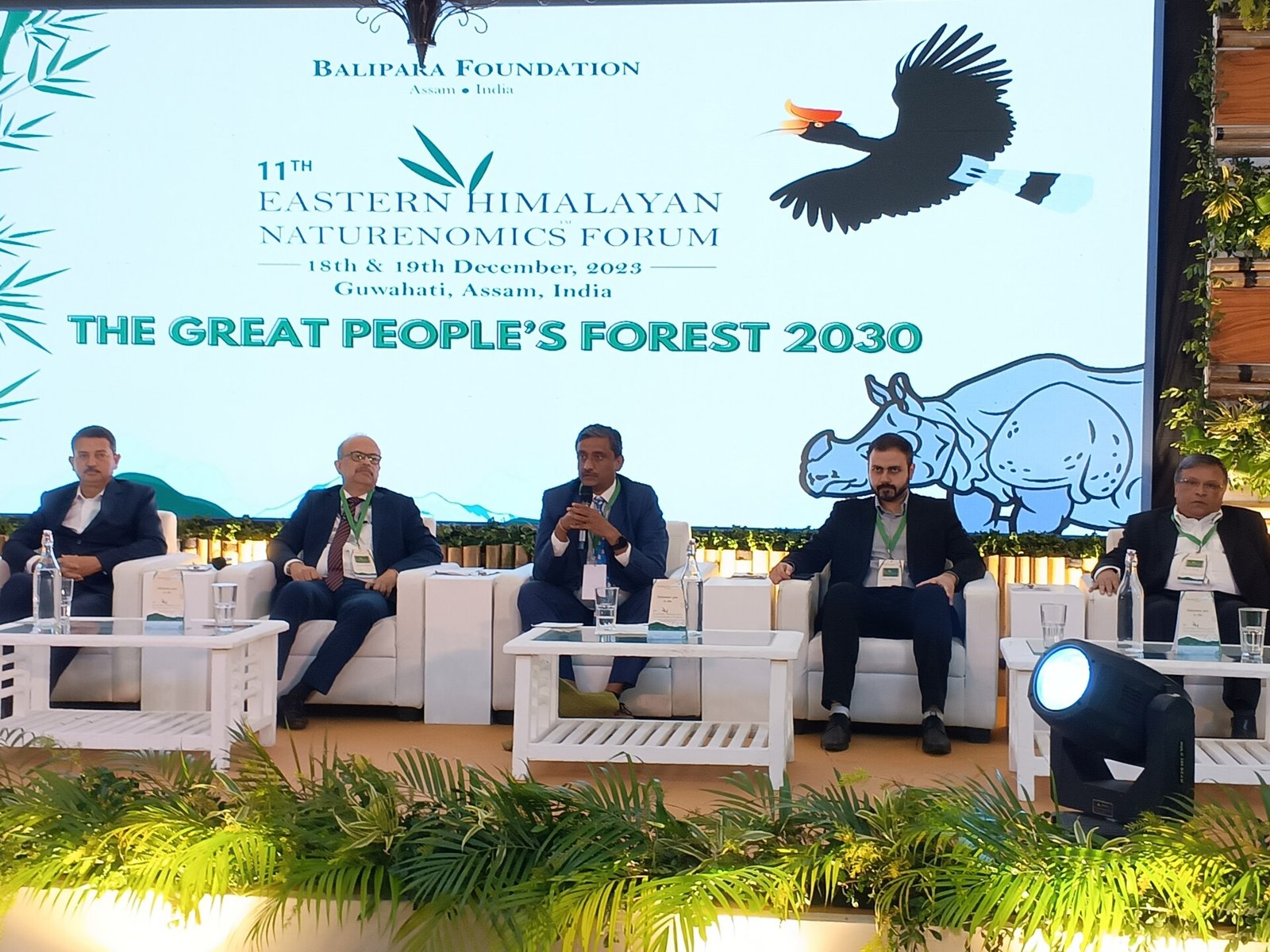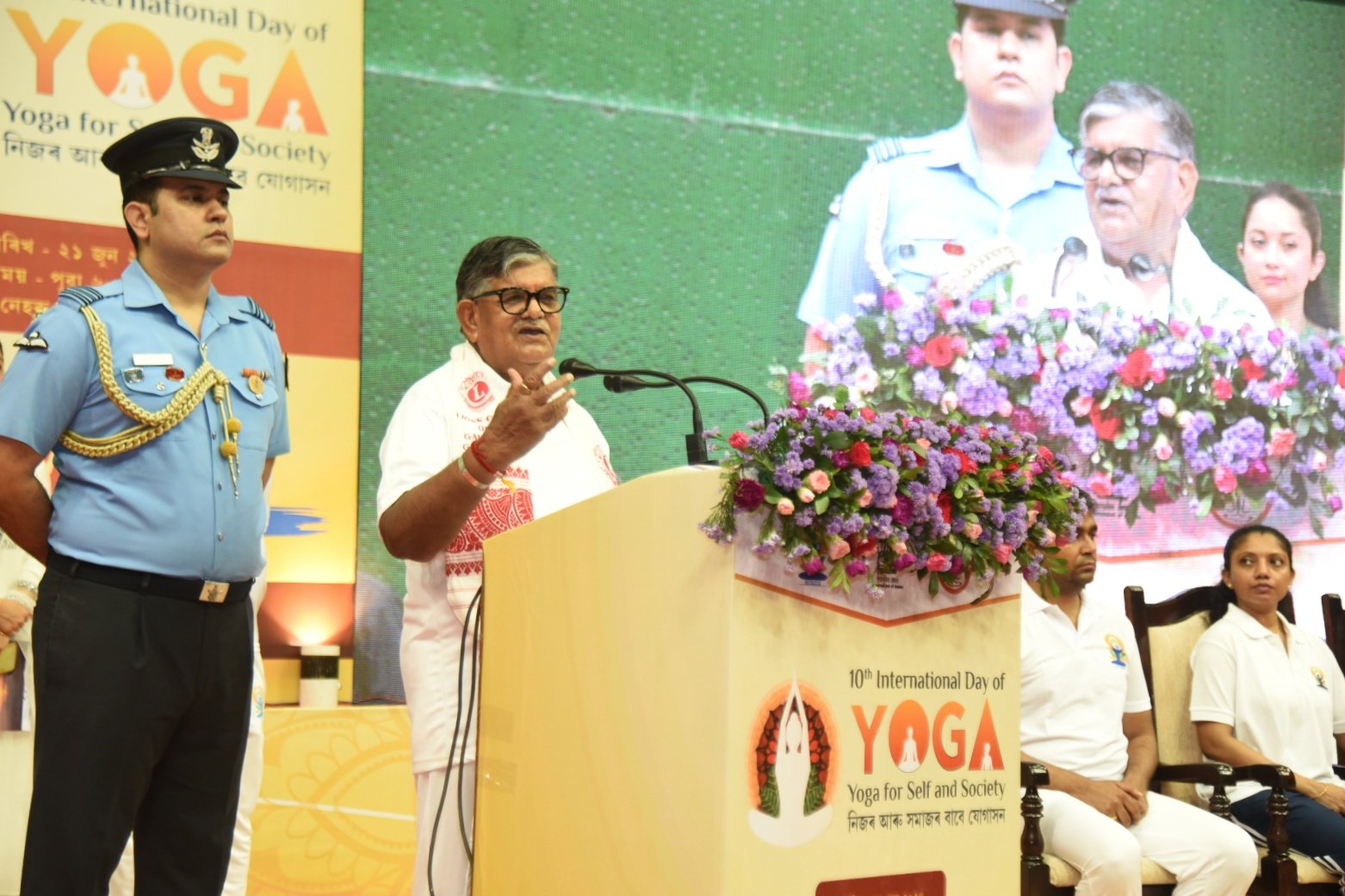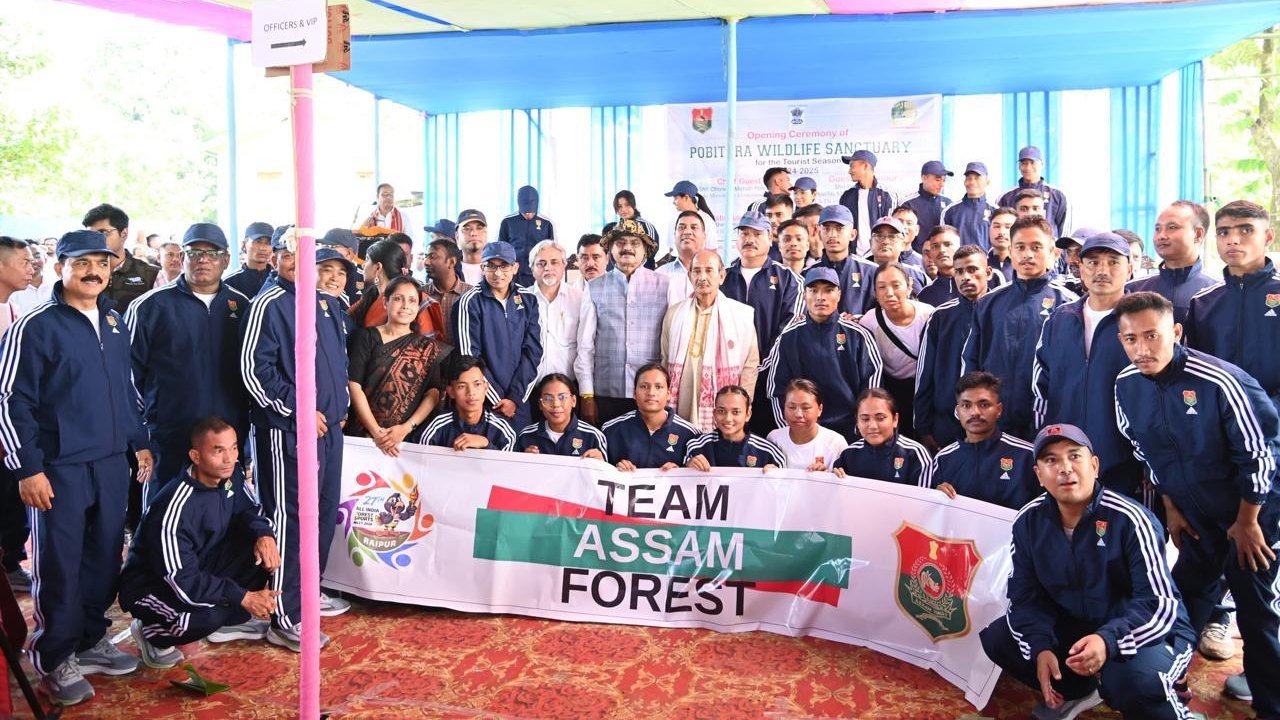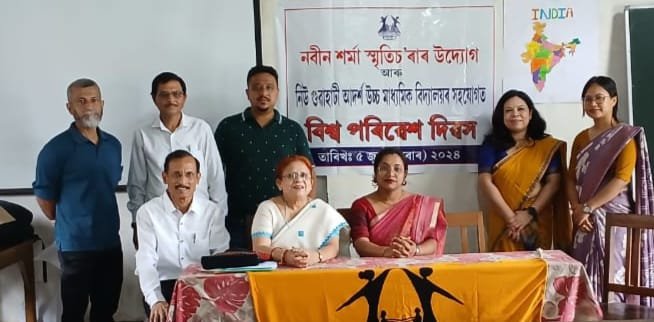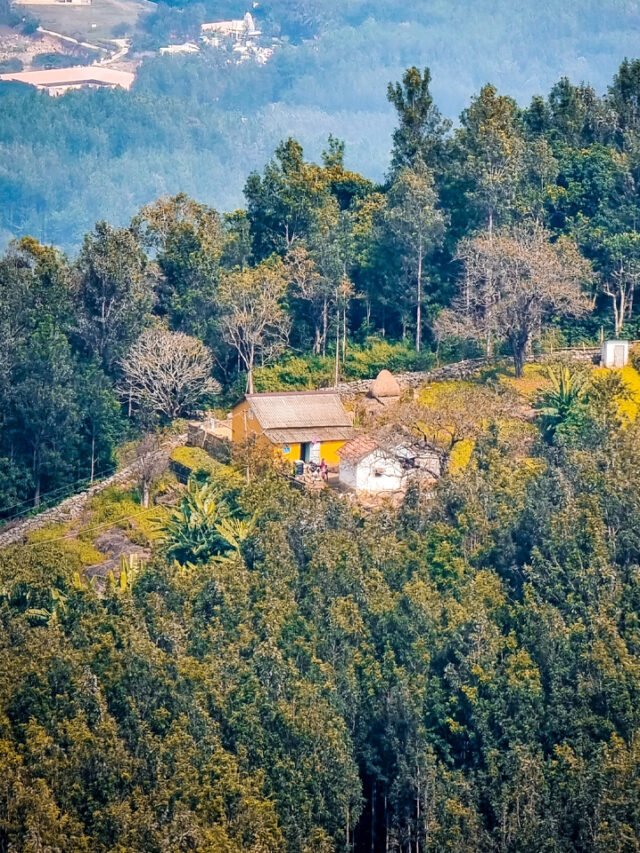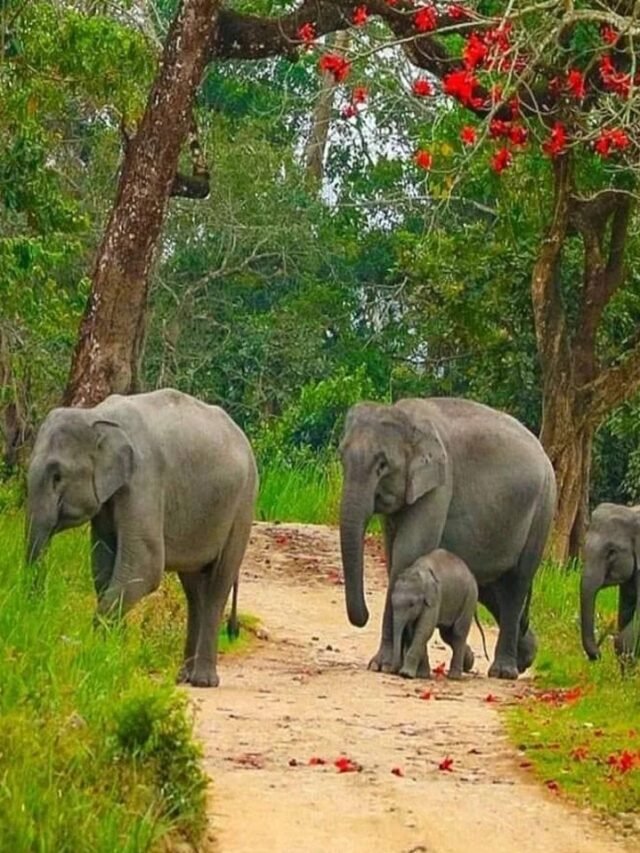HT Bureau
GUWAHATI, Dec 17: Balipara Foundation is set to host the 11th edition of the annual Eastern Himalayan Naturenomics Forum in Guwahati, with the theme ‘The Great People’s Forest 2030’. Balipara Foundation eagerly anticipates hosting this event on December 18 and 19, 2023. The theme taking centre stage this year is the call for the ‘Great People’s Forest 2030’, bringing together 60 people from over 15 countries. Over December 18 and 19, speakers and participants will tackle key themes to build a restoration agenda for the region to achieve by 2030, in accordance with the UN Decade of Restoration and pledges made to reverse forest degradation by 2030 under various climate and biodiversity agreements.
The Forum was launched at a curtain-raiser with contributions from leading figures such as Dr Vandana Shiva, an environmental activist, food sovereignty advocate, and founder of Navdanya; Dr Richard Jeo, senior vice president, Asia Pacific Field Division, Conservation International; Jason Knauf, Global Leadership Fellow, Conservation International; Purnima Devi Barman, UN Champion of the Earth and wildlife biologist; Ranjit Barthakur, founder forester, Balipara Foundation, and panel moderator, Sweetlana Ranjan, co-founder of i-Behind the Ink & co-designer of the Balipara Foundation’s Rural Futures Fellowship.
Ranjit Barthakur, founder of Balipara Foundation, pointed out the importance of the third pole, which is the Himsagar region. He stated, “The third pole, which is the region from Tibet to the Indian Ocean, is a predominant part of the ecological balance.” He added that the initiative by Balipara Foundation will continue to support and regenerate the Great Eastern Himalayas.
Dr Vandana Shiva, an environmental activist and founder of Navdanya, an initiative to promote biodiversity, stated, “If you look around in the North-East, where the forest ends and the farm begins, it’s difficult to see. So, one of the things we must do is get rid of what I think is a monoculture of mind.” She emphasised that the separation must be extinct to be a part of this initiative.
Jason Knauf, a Global Leadership Fellow at Conservation International and chair of The Great People’s Forest Project Board, stated, “The launch of the GPF first rapid-scaling portfolio, an initiative by Balipara Foundation and a coalition of partners including ATREEE and TERI at COP28 is an incredible example of action and vision at pace, working in harmony.” He added that while there is just vision but no action, Balipara Foundation is a great example of action and vision together. He applauded the efforts taken in this decade.
Notably, the Eastern Himalayan region holds 30 percent of South Asia’s forests. It is a vital lifeline for the region because of the critical role it plays in regulating the region’s hydrogeology: drawing water into the ground, minimising soil erosion & replenishing its soils. It is also facing high levels of degradation – the north-east has been a hotspot for forest loss for the past two rounds of the Forest Survey of India. The Global Stocktake signed by countries at COP28 explicitly mentions the importance of conserving, protecting & restoring nature, with an explicit call-out to halting & reversing forest degradation by 2030 while ensuring social & environmental safeguards aligned with the Montreal-Kunming Biodiversity Framework. With its rich forests, the Eastern Himalayan region has the opportunity to play a global role in setting an example for transboundary land restoration and management led by communities on the ground.
The Forum will explore critical themes on people, policy, economy, and technology to identify the regional capacities that need to be leveraged to create a unified regional restoration agenda. These conversations will explore the power of young people in building regional environmental leadership, the pathway to a complementary regional policy around regenerative economies, and leveraging natural capital to drive this. The Forum will also touch on key basics – land, energy, waste, water, air & carbon (LEWWAC) that are foundational to moving towards a green economy in the region.


